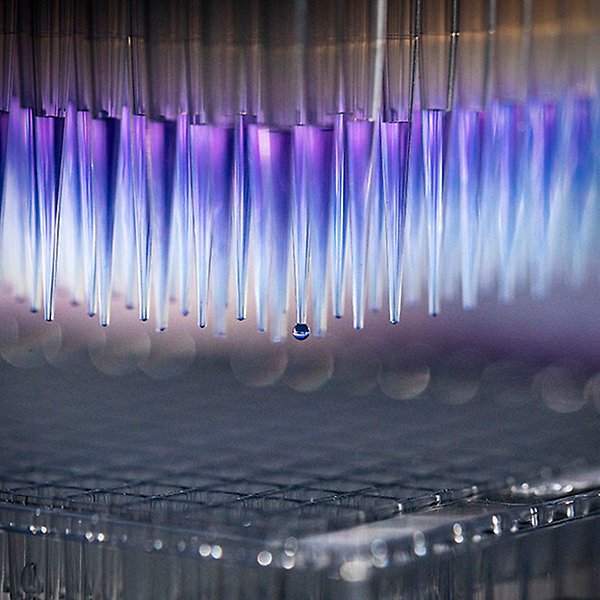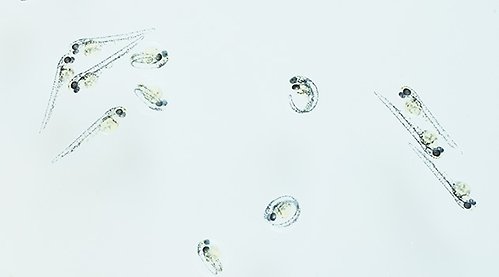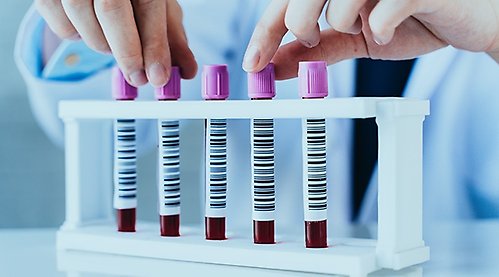Life sciences
Life sciences involve research on all living things – how living organisms work, interact and affect our surroundings. Biology and medicine combine with technology, chemistry, physics, materials science and pharmacology. The research has benefits in health and medical care, pharmaceutical development, medical diagnostics and the food industry, as well as biotechnology, veterinary medicine, plant research and forestry. Thanks to rapid technological progress in parallel with basic scientific research, it is now possible to study complex biological processes. The increasingly large quantities of data collected and analysed by means of scientific computing and artificial intelligence yield new knowledge and create new possibilities.
Uppsala has a long tradition of research in the life sciences. The Science for Life Laboratory (SciLifeLab) in Uppsala has technical resources for mapping human and animal genomes and exploring the background to diseases. This may involve studying the tiniest components of life in the laboratory, creating personalised cancer therapies or studying how newborn babies can get off to a good start in life. The rapid developments in the area also give rise to ethical issues about right and wrong.

Examples of ongoing research
Less sleep may alter how intense exercise stresses the heart
In a new study, participants underwent an intense bout of exercise after both normal sleep and after...

Zebrafish and AI replace some mouse experiments
Researchers at Uppsala University have used AI to develop a new method to study brain cancer. The me...

Protein biomarkers protect against disease development
A comprehensive study from Uppsala University shows that several disease-associated protein biomarke...

Examples of infrastructures and projects
Science for Life Laboratory (SciLifeLab)
The Science for Life Laboratory (SciLifeLab) – the national centre for life sciences research – is a large-scale national research facility in molecular life sciences. SciLifeLab focuses on technological development and data-driven research in cell biology, precision and translational medicine, and the environment and biodiversity.
The research infrastructure at SciLifeLab is available nationwide and aims to create – or serve as – a national framework for the large quantities of data that are generated within life sciences. Internationally, SciLifeLab will have a key role in coordinating the large quantities of data generated in the life sciences, notably through Swedish involvement in the European 1+ Million Genomes Project.
Science for Life Laboratory (SciLifeLab)
National Bioinformatics Infrastructure Sweden (NBIS)
A national life sciences research infrastructure that serves as the bioinformatics platform at the Science for Life Laboratory (SciLifeLab). It offers bioinformatics expertise in areas such as large-scale data analysis, systems development and AI.
National Bioinformatics Infrastructure Sweden (NBIS)
National Genomics Infrastructure (NGI)
A national research infrastructure offering technology for large-scale DNA sequencing and SNP genotyping. It forms part of the genomics platform at the Science for Life Laboratory (SciLifeLab). NGI also offers expertise in bioinformatics and statistics that aims to ensure that experimental designs are optimal and projects are scientifically productive.
National Geniomics Infrastructure (på engelska)
Competence Centre in Additive Manufacturing for the Life Sciences: Additive manufacturing for the Life Sciences
Research and development of new technologies for 3D printing, including complex structures for improved bioprocesses, more reproducible 3D tumour models and faster optimisation of medical treatments.
Competence Centre in Additive Manufacturing for the Life Sciences (på engelska)
